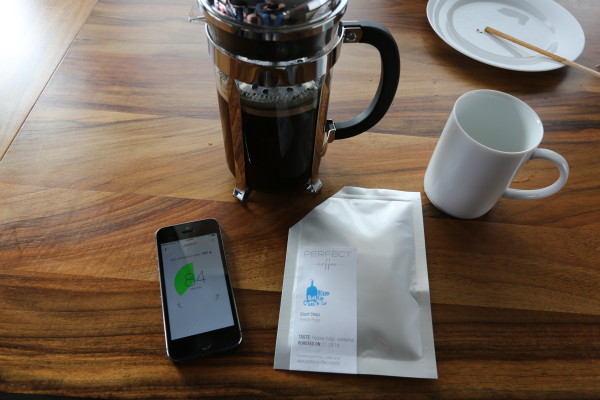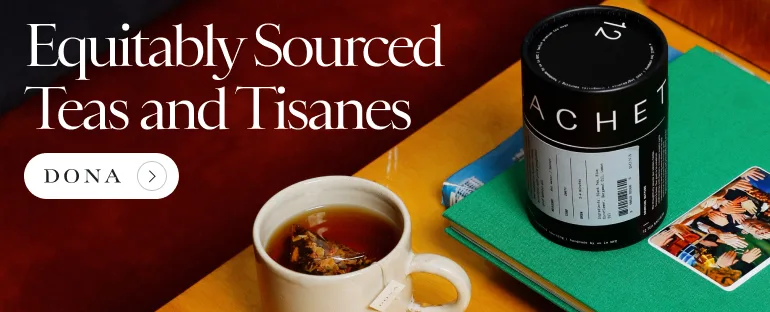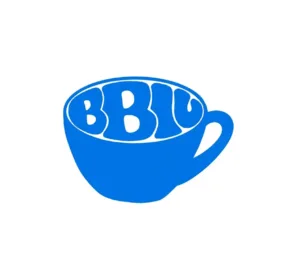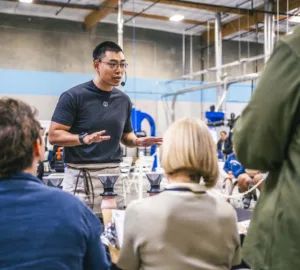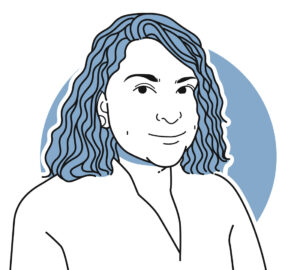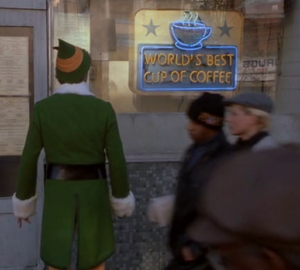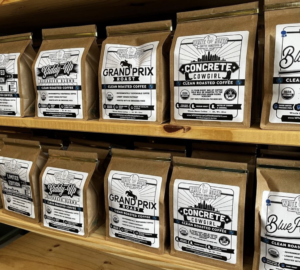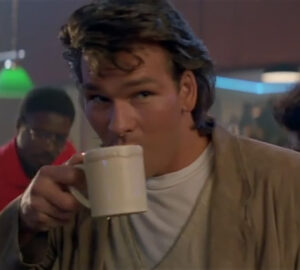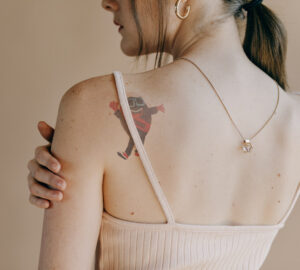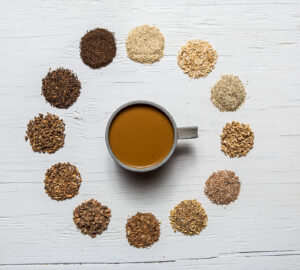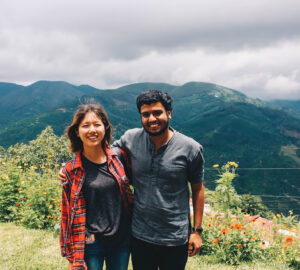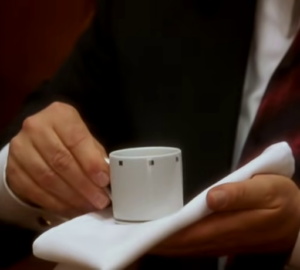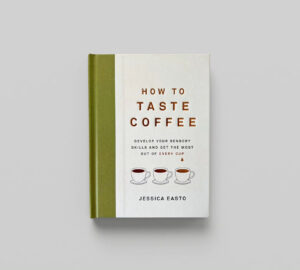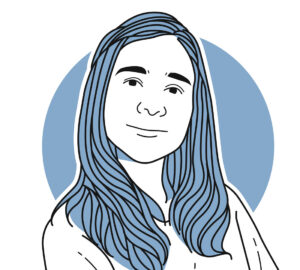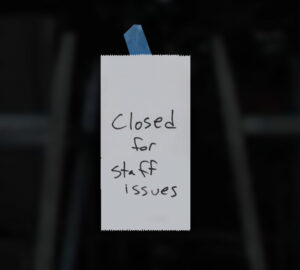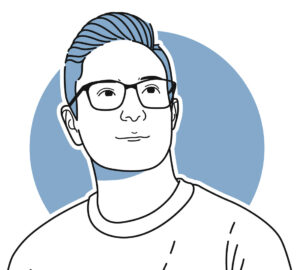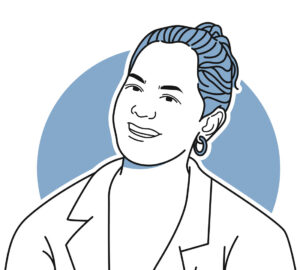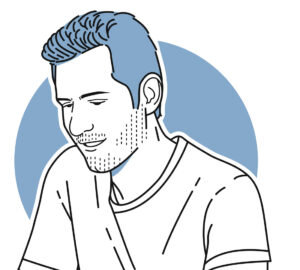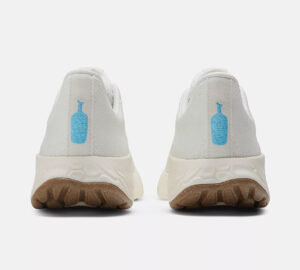Yesterday Sprudge.com broke the news that Blue Bottle Coffee has acquired Perfect Coffee, a Bay Area start-up dedicated to advancing coffee preserving and grinding technologies, and the creators of single-serve pre-ground coffee packets that, dare we say it, do not suck. You can read a “just the facts, ma’am” feature about this acquisition here.
In the course of researching that feature, Sprudge co-founder Jordan Michelman sat down for a phone interview with Perfect Coffee founder Neil Day and Blue Bottle Coffee founder James Freeman. Snippets from that interview appeared in our news feature yesterday, but the interview transcript itself is pretty compelling—Freeman and Day talk about the genesis of this merger, their plans for the future, and how sometimes admitting you’re wrong is the only way to be right. That both Day and Freeman are enormously successful entrepreneurs makes it all the more worth sharing.
Michelman spoke with Freeman and Day by phone from the Bay Area.
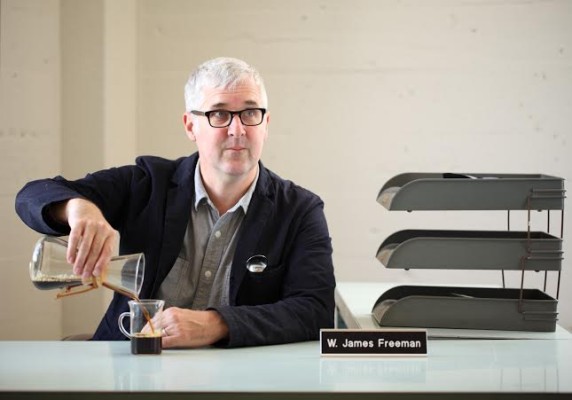
Give us the backstory of how this acquisition happened, from both of your perspectives.
James Freeman: From the Blue Bottle side, it started with Benjamin Brewer, our head of quality control. I work very closely with him and have for years, and in fact, he was originally a barista at Mint Plaza. It started with him talking to Neil. I saw these envelopes with our logo on it and I freaked out—I said “Benjamin, what is going on? Pre-ground coffee is gross, we don’t even pre-grind coffee in our stores—why are we doing this?” I didn’t raise my voice or use profanity or anything, but I was shaken.
Very sensibly, Benjamin said “Hey James, maybe you should try this”—he probably put it in a more diplomatic way than that, even. And I said “Oh, yes, ok, maybe I should,” and so we set up an informal trial a few weeks later. We brewed one cup, and then another, and even though I knew which was which, I was very upset to learn that one of my deeply held beliefs about coffee was being proved wrong in front of me.
So then we started to get more serious and set up a couple of tests: freshly ground coffee versus Perfect, comparing different roast dates, triangle tastings, and then even four hour ground coffee versus freshly ground coffee versus Perfect coffee. All kinds of permutations of testing were in play, with me, Benjamin, and Wolf Klinker, our head of production, testing our way through multiple trials. And the tests were just…inconclusive. Nobody could consistently point out which was the pre-ground Perfect Coffee and which had just been ground fresh.
When that happened it was very compelling to me, and I apologized to Benjamin for being a little snippy—and so we talked to Neil more, and got more samples.
We’ve always had this…I don’t want to say policy, but a habit, that we don’t grind coffee for our guests. It gets flat after a few hours so we don’t just do it—we don’t want our guests to have that experience. So this could be our way of saying yes! We still won’t grind coffee in the bag for you, but here’s this thing we can give you. It’s a hospitality issue we’ve been butting up against for 12 long years.
There are dozens of other possible uses and ramifications for us working together, but it started with us saying, “We can say yes now instead of saying no.”
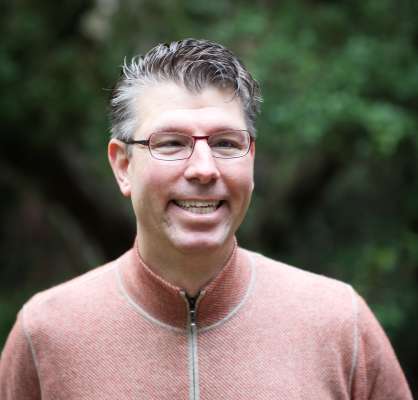
Neil Day: From my side, I’ve been a huge Blue Bottle fan since, you know … since probably 2005, 2006—and I lived down in the South Bay and I would ask my friends from up north to bring me Blue Bottle coffee when they came down to the valley. All that kind of stuff. Learning more and more about the coffee world, as I was getting deeper into it, I certainly learned about James and Blue Bottle’s attention to quality, and the really good work they did with sourcing and roasting and preparation.
And so I was quite aware of James’ thoughts on pre-ground coffee, and when we got Perfect Coffee to a point where we had a really good product, and we were able to deliver on the idea of fresh pre-ground coffee, they were pretty much the first people that we got in touch with because I felt that if we could convince their QC guys that this was actually good, and deliver the results we were looking for, it would be a real validation of what we were doing.
And so I had those initial meetings, and it was treated with the skepticism that I had expected, but they were open-minded about trying it out, and introducing it to James. I knew I had a big hurdle to overcome with Blue Bottle, and was excited to do that. As we were going through that process and getting to know one another…[I] saw that what Blue Bottle was doing was really exciting, and the people there were terrific, and it was the beginning of a really good partnership. We’ve worked closely with them over the course of the last year and a half…we’re two companies that think about coffee very much the same way and there’s just a lot of alignment there.
So when we started talking about joining forces, it seemed like a natural fit, and I’m excited to help get Blue Bottle to more people who don’t necessarily have the equipment, time, attention to detail…but still want to have a great experience with the magnificent coffees they have.
JF: It’s very deeply embedded in our process that we try everything blind, so there’s dozens of little laminated cards with letters of the alphabet, A-B-C-D—it’s always blind cupping, so that helps—that’s how we go into this, whether it’s cookies or orange cake with different kinds of eggs or coffees we’re QC-ing. It’s always blind.
Will Perfect Coffee packets be available in stores, or just online?
JF: Yes, I mean—the intention of this acquisition is to be able to sell stuff. That’s why we do it. So we will be selling stuff that Neil’s producing.
Right now we’re grappling with how to make the packaging more sustainable, and that’s a longer term issue, but I want to release this product soon. People are going to be super curious and skeptical, and so I want to get it into our shops as quickly as we can.
This may not be right away. There’s quite a bit of work to do in the next few weeks, but I want to get it out there and let people try, and take feedback from people. I envision it as a kind of test round of things we might sell. Get things out, harvest feedback, and then make a wider scale launch.
ND: I think the first step is to get the product exactly right. We’ve been working with Blue Bottle already [as a Perfect Coffee roaster partner] and have a good relationship, but this allows us to get a lot closer, and in some sense co-develop exactly the right product. We currently support three different brew methods and a bunch of different sizes, and so we might expand that with Blue Bottle.
The big thing is that when we start showing this to the public, it will be the best that it can possibly be. We want to start rolling this out, giving people exposure to it, and getting feedback. I want the good, the bad, and the ugly, so we can help improve the product the customer needs—getting to do that with your customers is a great process.
The packaging we have gets the job done now, but I have always wanted better and more sustainable packaging. That’s part of what’s exciting about working with Blue Bottle—because of their ability to do volume, we can make an investment in packaging that’s better for the environment, and do it a lot sooner.
How many employees total are coming over from Perfect to Blue Bottle?
ND: The whole Perfect Coffee team is coming over to Blue Bottle—there are four of us coming over, myself and three others.
Does this mark the end of Perfect Coffee working with a variety of roasters?
ND: We’re going to focus on Blue Bottle and getting the Blue Bottle product right. So this means one more round of coffees for our subscription customers for March delivery, and then we’ll work on transitioning them over to the Blue Bottle subscription service. The effect is that our current roast partnerships will wind down over the course of March.
Is this a purchase of Perfect Coffee’s intellectual property/patents in addition to the Perfect business, or a licensing of them?
ND: This is a purchase of Perfect Coffee by Blue Bottle—so everything that we’ve developed, all of the materials we’ve developed, are going over to Blue Bottle and joining the Blue Bottle team.
Neil, your new title is “Principal, Coffee Technologies at Blue Bottle”—this sounds like a title that has room to grow beyond the Perfect Coffee project. Tell us more about your future role.
ND: That’s right—while we’re not ready to talk about forward looking plans at this point, what you should read into the title is that I’m fired up to figure how we bring the best in technology to the world of coffee in the service of making great coffee more accessible to everyone.
I think what we’ve seen over the last 10–15 years is that coffee has reached a new level in terms of its quality, the awareness in the market of what great coffee can be, and there’s a tremendous amount of accessibility to great coffee through Blue Bottle and others who have focused on the cafe experience. What we all see is an opportunity to bring that gigantic step forward in coffee to a broader audience by making it more accessible in many more places.
In the coffee world, folks know how to make great coffee, and the people who want to make that investment is growing. But with thoughtful application of technology we can expand that circle a ton, bring more people into the tent, and expand that experience by giving people the delicious coffee they deserve. So I want to know how to apply e-commerce, mechanical engineering, analytics, and other systems to make that prcoess more available.
JF: One of the reasons we’re excited about this at Blue Bottle is not because we think Neil has one great idea in him. The more I got to know Neil, I thought, there’s so much more we can do to make an easy, uncompromised coffee experience.
This question is for James Freeman—this is the second acquisition of an at-home direct to consumer coffee project by Blue Bottle in the last year, following Tonx. Why?
JF: You’re getting a sense that that’s important to us. I like the idea of controlling our experience that we provide to our guests as much as possible. What that means is, for our company, we don’t have a huge wholesale program. Many coffee companies, most of them in fact, are primarily driven by wholesale, and it becomes the vast majority of their revenue.
In a previous interview I believe you once compared selling coffee wholesale to the Myth of Sisyphus.
JF: That’s right, and what are the last two lines of that work? “The struggle itself toward the heights is enough to fill a man’s heart. One must imagine Sisyphus happy.”
I don’t want wholesale to be 80 or 90 percent of our revenue. That means having our own retail shops, and I think that means connecting with people where they live. It means having a digital channel, and subscriptions to send home. It means providing ways for customers to connect with us where the coffee is beautiful, carefully sourced, well-roasted, and delicious. I just want to make it easier for people to have that experience.
My whole life I assumed that grinding whole beans was the only way to enjoy beautiful coffee. I have had a preconceived notion proved wrong in front of me by Perfect Coffee. It’s embarrassing but also exciting.
ND: I have years of experience in e-commerce, and that was helpful with Perfect Coffee of course, but when I was thinking about the amount of energy we would put into the project, I wanted to put the most energy into solving this quality and freshness problem, and then put in, you know, enough energy to the e-commerce to make it good, with the intention that someday we’d really invest heavily in e-commerce and make it phenomenal.
The digital guys at Blue Bottle are charging ahead at making e-commerce great, and I think we have some stuff we can offer there, but they’re already ahead of where we were with our e-commerce subscriptions. We’re bringing a kind of new product category to them and they’ve got a great platform to get out to customers digitally. So it is very complementary.
JF: I agree, and I can spend my whole life railing against K-Cups—why do they suck so much? Why are people being duped into this experience that is not optimally delicious?—but now, I can do something about it.
People want convenience. I got an iPod 10 years ago, and I stopped buying vinyl as often, even though I know vinyl is better sounding. I got seduced, too—I am maybe lazy in that part of my life, but there are people who want to be that way with coffee while still drinking something delicious. I want us to give back some convenience without making them trade.
In researching a previous story on Perfect Coffee, I had an “in the wild” experience with it that convinced me that the project was special.
I was at a Christmas party at a friend’s house, who happens to be an accomplished barista, and is now an espresso trainer for a very good small roaster in Portland, Oregon, where Sprudge is based. Because he’s a coffee professional he doesn’t really own any coffee equipment, and I had some Perfect Coffee pouches in my car, so we jerry-rigged a pour-over out of some pouches and an a disposable Kantan dripper found in the back of a drawer.
The coffee tasted just fine—really pretty good, actually, and downright stupendous for something pre-ground. James, have you had any experiences like that with Perfect Coffee that helped influence your decision to acquire them?
JF: We have this little cabin in a town called Geyserville, about 70 miles north of San Francisco. It’s our little treat, my family and I, and so we go up there on the weekend sometimes.
There is always that moment of like—’Did I bring the cheese? Did I bring the eggs?’—it’s always this logistical challenge. So one time I forgot the coffee, and then I realized I had left a few Perfect Coffee envelopes in the back of this cupboard, and it was like “Oh God, I’m saved.”
I’d been tasting it and cupping it in labs, but hadn’t been drinking it for pleasure. But you know, any port in a storm…I was desperate! So I made a little Chemex of it, and I think it was actually a packet that had been optimized for a pour-over, so my brewing was like, not exactly like you were supposed to. But I get to the bottom of the cup, and I’m still drinking this delicious coffee, from top to bottom of the cup.
The water up there isn’t the best water, and I only had a balance beam scale, so it wasn’t the most scientific coffee brewing in the world that day, but it was a really pleasurable drinking experience. That’s when I started shifting in my thinking. I’d had my tastings in the lab, but this was out of the lab, in a break in case of emergency moment, and it got me thinking … a lot of people will really benefit from this.
It is my job to ask you how much the company was sold for. Can you share with us the sale amount?
JF: Unfortunately it’s our job to say we won’t talk about money. I’m not just saving that for the New York Times!
ND:We’ll just leave it at that.
Top photo courtesy Clay McLachlan.
Blue Bottle Coffee and Perfect Coffee are advertising partners of Sprudge.com.











